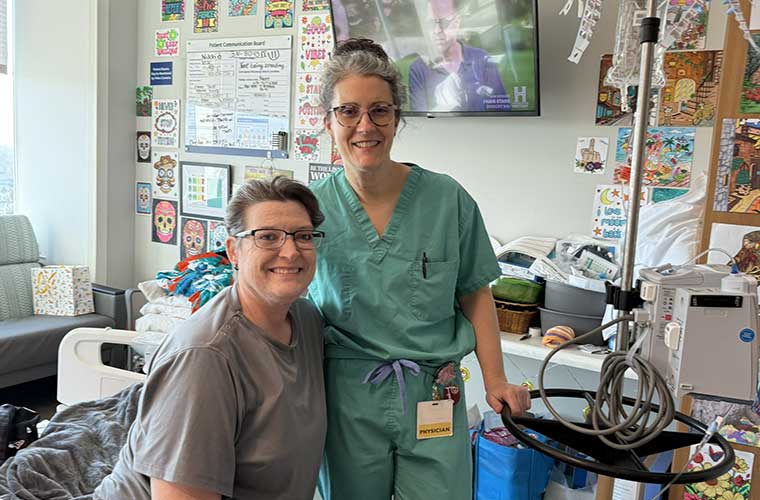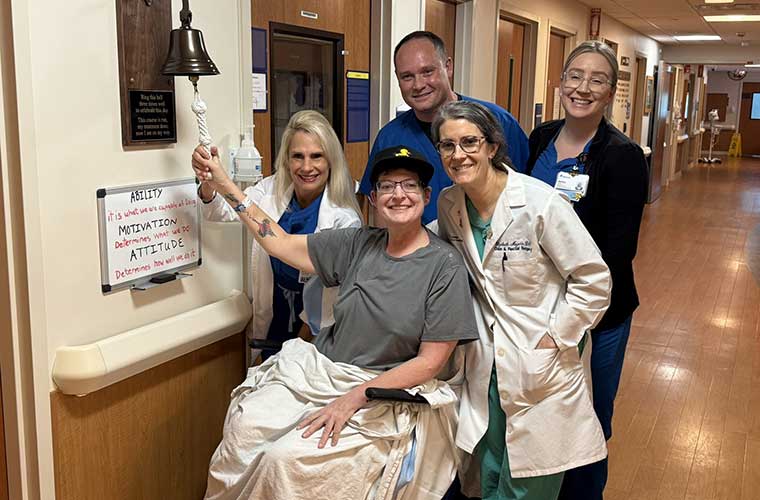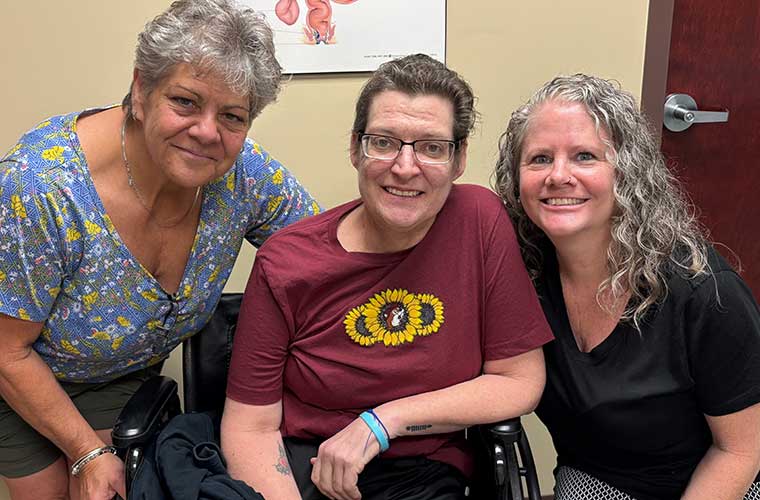BayCare’s Cancer Institute Offers Hope in Long-Term Patient's Complex Cancer Case

Nikki Reed feared her life was over when she received a rectal cancer diagnosis. Fortunately, the multidisciplinary team at BayCare’s Cancer Institute at St. Joseph’s Hospital devised a plan to change her mind. And, as part of a system that treats more than 7,000 new cancer cases annually, the team was able to overcome challenges and deliver high-quality, compassionate care to allow Reed to proudly celebrate this year’s Cancer Survivor’s Day on June 1.
Reed, a bank manager, came to Elizabeth Myers, DO, a BayCare Medical Group colorectal surgeon after her OB/GYN found a lump between the wall of her rectum and her vagina. “After (Dr. Myers) examined me, she said, ‘I’m going to give it to you straight’ and she told me I had rectal cancer,” Reed said.
Then the conversation shifted to Reed’s plan of care. “After talking with Dr. Myers and hearing her plan, I was amazed because she used the word curable,” she said. “And when I heard that word, the life that I thought I lost came back to me.”
Reed’s care included hospitalization that began in July 2024. In the weeks after she was diagnosed and was going through her staging work up and treatment planning, she developed a life-threatening necrotizing infection. This had to be addressed before cancer treatment could begin, Dr. Myers said.
“The infection led to the need for very complicated wound care over many months that could only be tolerated in the inpatient setting for Nikki,” Dr. Myers said. “In order not to lose ground on Nikki’s cancer treatment, our hand was forced to start chemotherapy and radiation while we continued complicated wound management.”

The dedicated team of clinicians – including radiation oncology, medical oncology and pain management specialists – and support staff are backed by BayCare to provide advanced care in even the most complex cases. Tim McMahon, director of BayCare’s Cancer Institute, says the team meets each patient where their treatment takes them. “Not every patient will need a lengthy hospital stay,” he said. “But we are here to provide the necessary support and care that each patient requires."
Reed responded well to treatment; the tumor shrank. She had surgery to remove the tumor on March 26, followed by rehab. It went well and she has now entered into survivorship, Dr. Myers said. Reed went home in May.
Because of her long-term care, Reed and her blended family became like family to the surgical unit team. “We’ve had about 60-plus team members who have provided care for her,” said Story Southworth, the unit’s nurse manager. “We are all very attached to and care about her.”

The team celebrated Reed when she completed chemotherapy as well as holidays and milestones over the past year. Reed is grateful that her family and the team were there to lend support.
“What keeps me going is my team – my doctors, my nurses, my techs,” she said. “And then I have a slew of family members and friends, people from work.”
Now a cancer survivor, Reed’s message is clear: “Get your checkups. Make sure you’re on time with them, stay in touch with all your doctors,” she said. “And then encourage your friends and family to do the same. I would never want anyone to go through what I’ve been going through.”
Dr. Myers said it’s important to get screened because colorectal cancer is highly treatable if diagnosed early. Screening should begin at age 45 or sooner if there is a family history of the disease.
“Nikki’s story highlights that even in the most horrific circumstances, there can be hope,” Dr. Myers added. “She has learned that this hasn't stopped her from doing things and it’s important for the public to know this.”
Learn more: BayCare Cancer Institute
